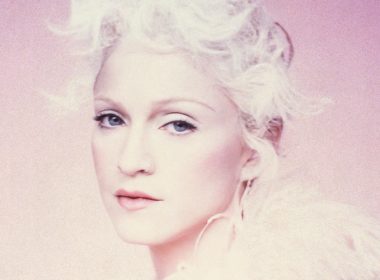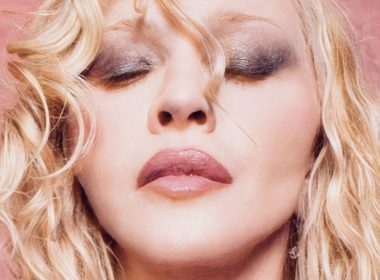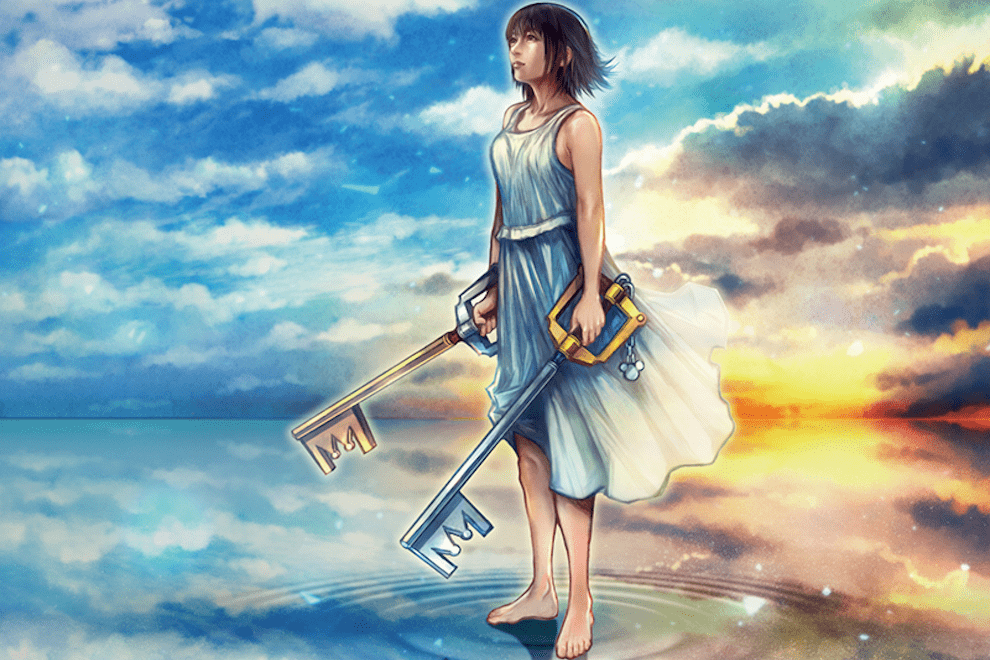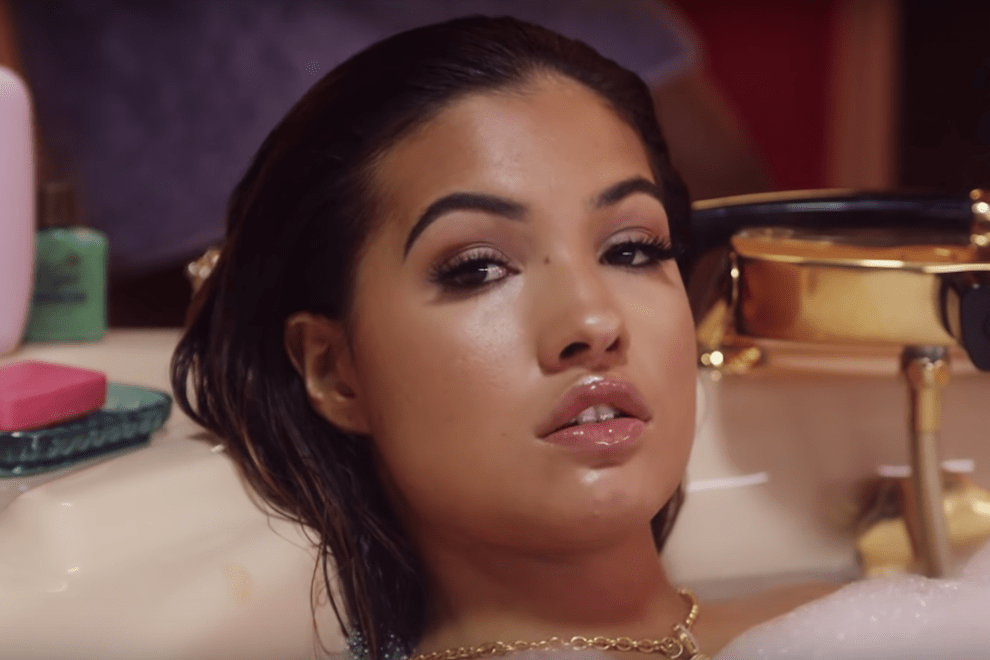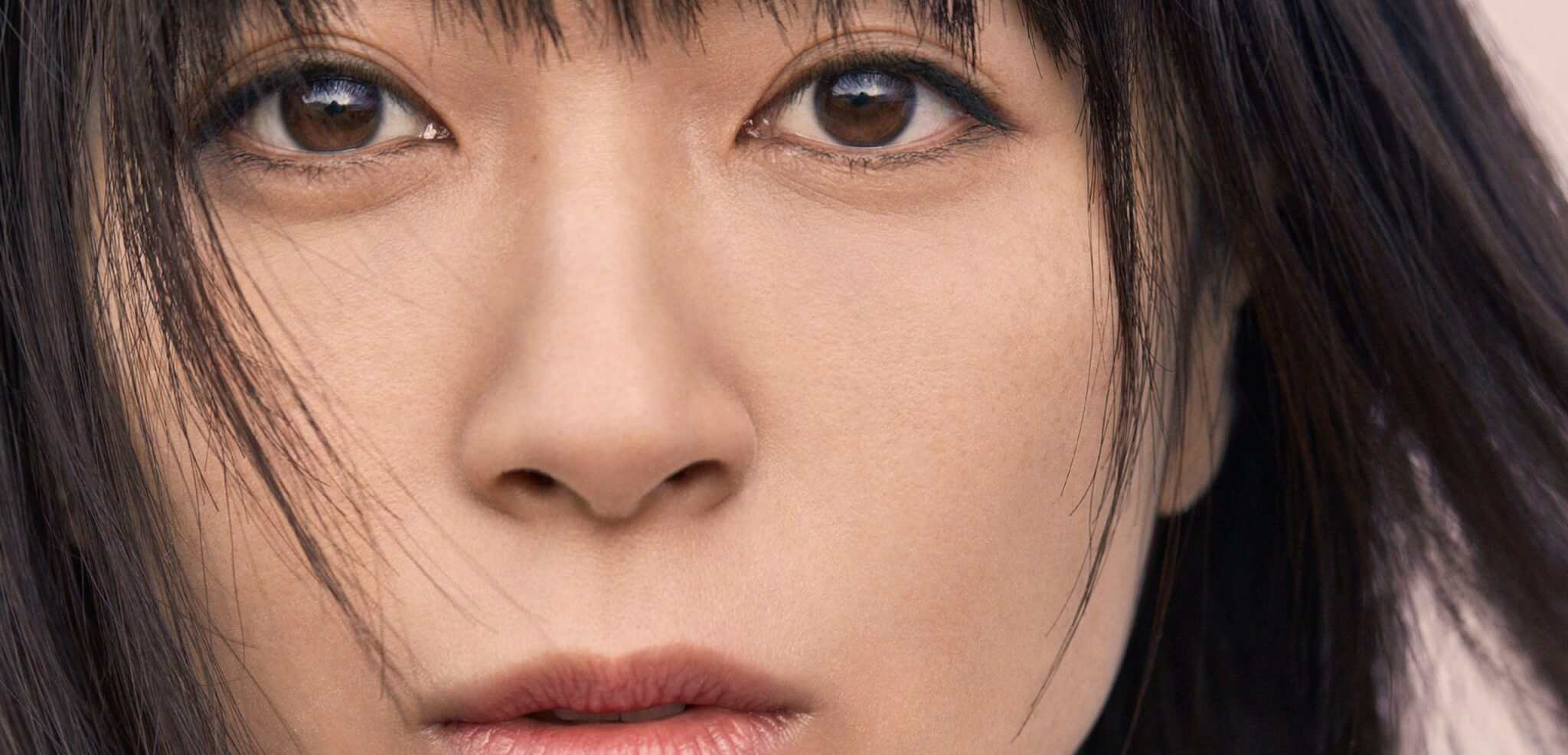It’s been 84 years (actually, though – way longer than the #10YearChallenge, at least), but Hikaru Utada – the artist formerly known as Utada Hikaru, and briefly just Utada – is finally fulfilling her fate.
Or, well…her contractual obligation to provide a theme song for the third installment of a beloved video game series.
Kingdom Hearts is by no means responsible for Utada’s success (which came years before), and sometimes it’s irritating that people only know her solely for her contribution(s) to the soundtrack. But it’s not an insignificant part of her career, either! I know I wouldn’t have encountered her – and subsequently fall down a J-Pop wormhole that would change my life forever – without “Simple & Clean” all those years ago. I’m certain I’m not alone in that experience. Plus, I played and loved the first two games, which have a place in my heart as a bonding activity between me and my younger sister growing up.
Last year, Hikki delivered a full-circle moment in the form of Hatsukoi (now available on streaming, finally!), a return to, and reevaluation of, the concept of “First Love,” which also happened to be the name of her debut in 1998. See what she did there?
The introspective album contained a beautiful, slow-waltzing ballad called “Chikai” which, at the time, we understood to be the theme song of the seemingly eternally delayed Kingdom Hearts III.
Here’s what I thought about it then…
For some, Kingdom Hearts marked the entry point into Utada Hikaru’s career. But it doesn’t matter whether you’ve played the video games. The career-defining songs weave their own narrative, from the blossoming romance of “Hikari” (“I’ll introduce my family / You’ll surely get along well“), to the uncertain, furious “Passion” propelling forth at full speed (“If I face forward will I meet you again? / The future continues on and on…“) to, at long last, the trilogy’s conclusion: “Chikai,” a deeply romantic, deeply emotional sigh of relief.
“I don’t know a thing about fate, but in this moment, I can’t help but acknowledge its existence.”
Although initially drawing some mixed reactions based on previews, likely due to the impossible expectations set by “Hikari,” “Passion,” and the years of waiting since, the piano and string-led production unfolds gorgeously, as Hikki sings of taking a oath, embracing happiness in the moment, trading rings while tearing up at the thought of the past.
The “light” of “Hikari” traveled all the way here after sixteen years: “Light flows in through the wide-open door, I want to stay by your side, now and forever / Since long ago, there’s been no other choice for me,” she declares during the song’s most intriguing moment, a hurried speak-sung declaration two-thirds of the way in. Essentially, these are vows.
It’s an assured plunge – into marriage, or at least, a union – tinged with a sad underlying sense of nostalgia, resistant of an overly optimistic “happily ever after,” but unafraid of what’s to come. What a stunning way to tie the knot, and tie together a franchise that has meant so much to so many.
But! “Chikai,” as it turned out, wouldn’t entirely tie together the franchise. There was another song in the works the whole time. Sneaky, Hikki.
In what was intended to be a remix of “Chikai,” a brand new collaboration was born between our favorite EDM Emo Skrillex, Poo Bear and Hikaru, resulting in an opening theme song: “Face My Fears.”
And suddenly, we’ve got a four song package as part of a Face My Fears EP: the English and Japanese version of “Face My Fears,” as well as “Chikai” and its English counterpart, “Don’t Think Twice.”
I’ve already said my piece on the ending theme(s) in the past, so let’s talk about these new beginnings: the collaboration is a fusion of Skrillex’s future bass production stylings, Poo Bear’s melodies (there’s a hint of Justin Bieber‘s Purpose lonesomeness to the track – not a criticism) and Hikaru’s signature vulnerability and bravery while diving into uncharted (Disney) worlds.
The song – while great and super replay-friendly in its own right – didn’t strike me as “a Kingdom Hearts song” at first, admittedly -that breakdown is just so jarringly “modern” in comparison to the songs that have come before, right?
Then again, my standards were next to impossible: “Hikari” is objectively perfect, and I feel so strongly about “Passion” that it’s permanently inked in my skin. The bar was set…uh, high.
That said, “Face My Fears” feels fresh for all parties involved. It’s exciting to hear Hikki tackle more “mainstream” EDM festival-friendly territory, especially given that her last two records have more or less somber, keeping a safe distance (REFERENCE) from anything too electronic or accessible, with one or two sort-of exceptions.
That drop alone is also pretty crazy – it’s like what I must assume surging through a rip in the time-space continuum feels like. Fitting for the game’s time travel aspect, actually! The best part of the song, of course, is that chanted bridge two-thirds in, which plays like a final hurried prayer before battle, and maybe even a throwback to the backwards lines (“I need more affection than you know“) strung throughout “Passion.”
“I want to hurry and meet / The me I’ve yet to know,” she sings in the song’s Japanese version. (As with each theme song, the Japanese versions are just more poetic and thought-provoking.)
In fact, the more that I think about it, “Face My Fears” doesn’t seem that disconnected from the Kingdom Hearts legacy: the surging beat isn’t entirely unlike the furious pounding drums of “Passion,” and the lyrics are still spiritually linked to the songs that have come before: “Regardless of warnings, the future doesn’t scare me at all,” she sang to us well over a decade ago.
Alright, so maybe the future seems slightly scarier with the passage of time…but we’re still committing to soldiering into this unknown together, regardless.
And speaking of aging: this EP release happened to be timed with a very special day in history. Happy birthday, Hikki: you are truly a light.
The Face My Fears EP was released on January 18. (iTunes)
This EP is featured on the MuuTunes Spotify playlist. Subscribe!
You can also subscribe to MuuTunes on Apple Music.


